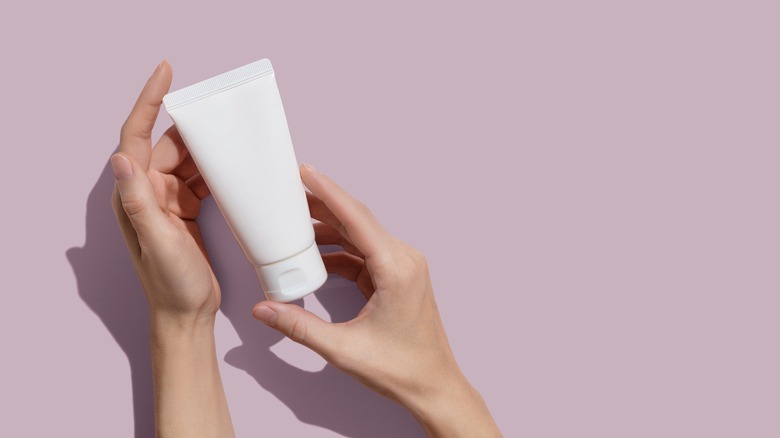Should You Be Avoiding Silicones In Your Skincare Routine?
The beauty world is no longer superficial, and the quest for natural, junk-free skin care is rising. Many people are becoming increasingly aware and picky about the ingredients added to skin and hair care products. According to Healthline, various skin care ingredients have been marked unsafe — mostly those containing parabens, phthalates, sulfates, and formaldehyde. Recently, silicones have made their way into the list of controversial ingredients. However, opinions are still mixed regarding their safety.
While some people want to boycott products containing silicone, others don't want to miss out on the perks they offer. Silicones have been a mainstay in beauty because they come with several benefits — but should you avoid silicones in your skincare routine? Before answering this question, it's important to understand what silicones are.
Silicone is a man-made, synthetic polymer made up of silicon, oxygen, and hydrogen (via Livescience). According to Medical News Today, the process involves the chemicalization of silic, which is a natural compound. It is combined with other ingredients such as oxygen, carbon, and hydrogen to produce silicone-based skin care products.
The best way to know whether skin care products contain silicone is to check their labels for ingredients such as dimethicone, cyclopentasiloxane, cyclomethicone and cetearyl methicone. Most of these ingredients are easy to identify because they end in 'cone' (via Medical News today).
Why are silicones used in skincare products?
According to Healthline, the unique texture of silicones offer a slick feel when used in serums and moisturizers. This not only makes it easier to apply the product, but the added silicone also smoothens the skin and makes it look plump. Furthermore, silicones are resistant to water and air due to their occlusive nature, making the chemical useful in the wound healing process. Skincare manufacturers also trust silicone for its hydration perks. According to Medical News Today, silicone reduces transepidermal water loss by creating a skin barrier that traps moisture.
A 2016 study published in the journal Anais Brasileiros de Dermatologia includes fibroblast stimulation and collagen production as other unique ways silicone impacts skin health. Fibroblasts are the main cells of active tissues, while collagen provides structural support to essential tissues. With more of these elements, your skin improves in elasticity and strength, per Medical News Today.
Potential side effects of silicone
Despite the dermatological benefits of silicone, various side effects are associated with the chemical. According to Medical News Today, the main reason why people avoid silicone in skincare is because of allergic reactions like redness, itching, swelling, burning, and hives. Beyond allergies, silicone exposure is a health hazard if it gets inside the body, as noted by Healthline. It can cause a condition known as silicone embolism, which is linked with various symptoms, including fever, confusion, and lightheadedness, per Medical News Today. People with this condition often have one or two of these symptoms, which are sometimes intermittent, meaning they come and go.
It's important to see your doctor if you feel unwell or have breathing difficulties that you suspect are due to silicone intoxication. This is even more necessary if you've had silicone injections, fillers, and breast implants. The silicone used for these procedures has been linked to immune conditions like rheumatoid arthritis and systemic lupus erythematosus (via this 2013 review published in the Journal of Immunology Research).



